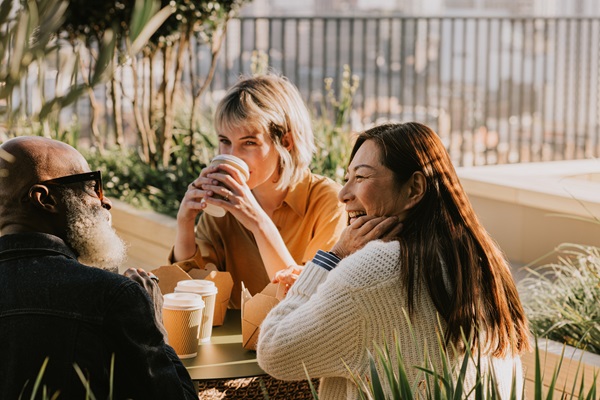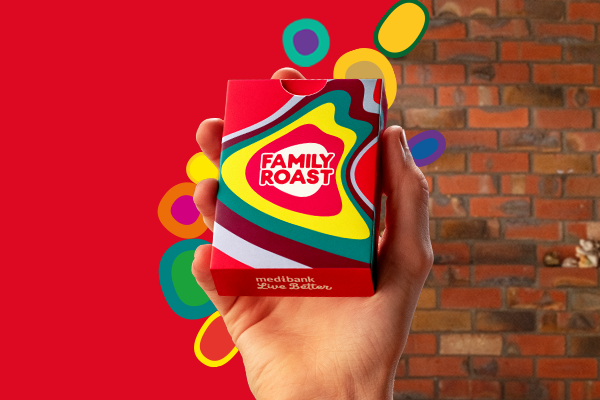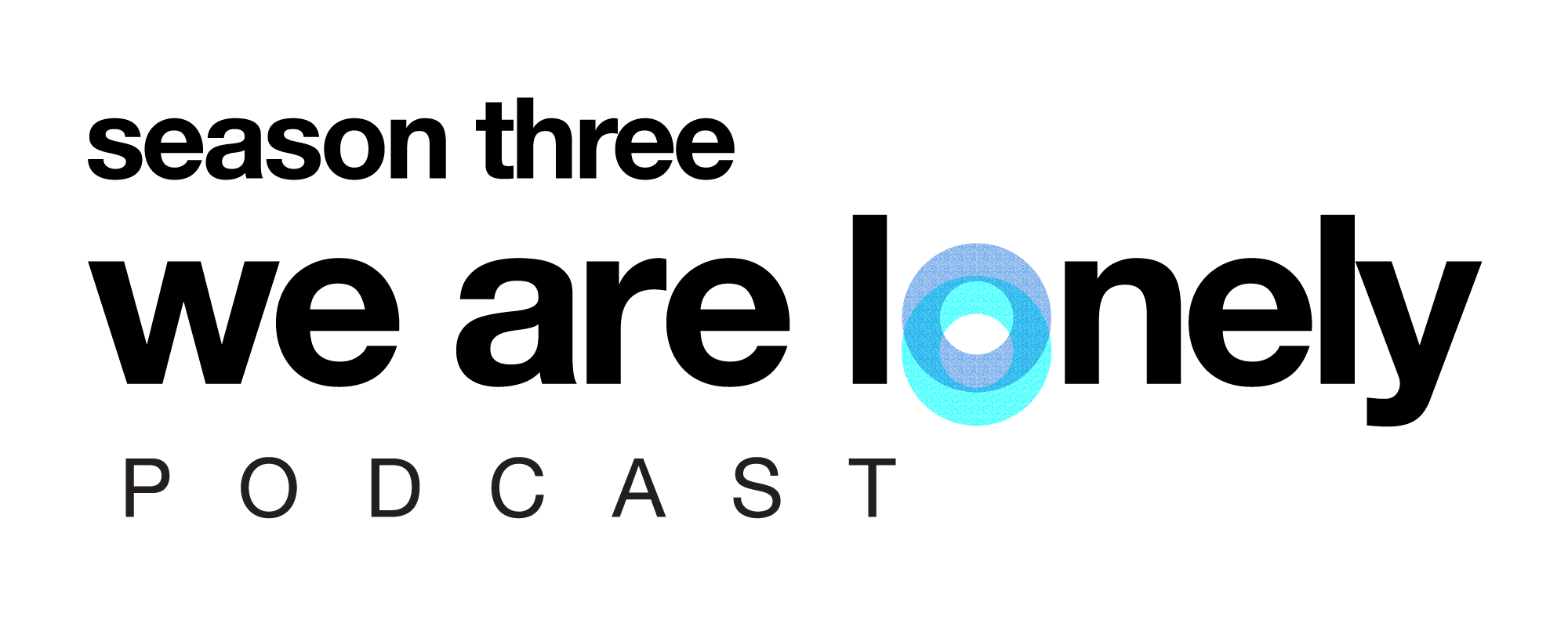Why connection matters

If I asked you to make a healthy change, you’d probably think about cutting down on chocolates or getting to the gym more often. Calling your best friend for a good chat or getting down to a local footy match isn’t necessarily what comes to mind.
We all know how good it feels to connect with other people, but many of us don’t think about it as a crucial part of our health and wellbeing.
The research is now clear that having strong connections is good for both our physical and mental health. So much so that some doctors are now using social prescribing, linking patients with community groups to help improve their health.
Connection is important for health
Social connection is an important psychological need, with significant impacts on our physical and mental health explains Dr Ali Walker PhD, a human connection scientist and host of Medibank’s We Are Lonely podcast.
“Unlike a physical need, for example food or water, a lack of connection will not kill you immediately. But the research shows it will have an effect over the long term,” she says. “If you're profoundly lonely, a lot of the time, that's when we start to see quite serious mental and physical health effects.”
Social isolation occurs when you don’t have many strong relationships or social interactions. Both social isolation and loneliness have been linked to:
- Poor wellbeing and an increased risk of mental health conditions like depression and social anxiety
- Increased risk of chronic health conditions, including dementia and heart disease
- Increases in unhealthy behaviours like smoking, alcohol and drug use, physical inactivity and poor sleep.
There are 4 types of connection
When it comes to connection, many of us immediately think of the relationships we hold with friends and family. But Dr Walker explains we should think about four different types of connection:
One-on-one connection: The connection you have with one other person, for example, spending one-on-one time with a partner, parent, sibling or best friend. “We need other people’s love and perspective to help us feel centred,” says Dr Walker.
Social connection: The connection you have with a group of people. This can include friendship groups, sports teams, and neighbours.
Collective connection: This type of connection refers to your connections out in the world, for example, chatting to a barista when you get your morning coffee, or going to a sports game. “They may seem incidental, but they are extremely important for reinforcing our social identity,” says Dr Walker.
Connection to self and surroundings: The connection you have with yourself is the foundation for all other types of connection. It includes how connected you feel in your own company and to the environment around you. Any activity that energises you and helps you to refuel could be considered an act of connection, for example, reading, cooking, or swimming in the ocean. “It's that feeling of the deep exhale,” says Dr Walker. “That's what you're looking for in connection to yourself. When do you feel completely at peace?”
How much connection do you need?
Everyone’s connection needs are different, and what you need will depend on your personality, says Dr Walker. Unlike food or sleep, it’s difficult to prescribe a certain type or level of connection for good health.
“If we think of the 4 different types of connection as a pyramid, an introvert’s pyramid will be very different to an extrovert’s pyramid,” explains Dr Walker.
“If you're introverted, you'll need a lot more connection to self and place. You'll also prefer the one-on-one or small group connection, and lots of larger group and collective connection could be a little bit overwhelming.”
“An extrovert will need much more variety in terms of their social and collective connections.”
Understanding your individual needs and the signs to look out for when you are not getting enough connection – whether that be with yourself or others – is important.

Get your family. Get the game.
And get playing on Sunday 20th July.
The Medibank Family Roast is a card game designed to get families connecting and talking. Because when the bonds of family are stronger, Australia is stronger. So get around the dinner table on Sunday 20th July. It’s time to serve the questions you’ve always wanted to know the answer to.
Signs you need to connect more with other people
Loneliness is a normal human emotion, and at its core, it’s a sign we are not getting the connection that we need, says Dr Walker.
And that feeling can arise even when we’re amongst a crowd, or spending time with our loved ones.
“We all experience loneliness from time to time and different things will trigger us depending on who we are. For example, if you are very extraverted, you will start to feel lonely quite quickly,” says Dr Walker.
“Our response may be different, depending on our personality and how we experience a lack of connection. But we all know that when we don't have our needs met: some people might feel angry, some people might feel sad, some might start to feel tired or physically drained.”
“It just means that you're not feeling the way that you should be feeling, and in fact, it’s a good thing when we notice that signal. It’s a sign we need to change something.”
Signs you need to connect more with yourself
If you’ve found yourself craving time alone after a busy week of socialising, you know that there is such a thing as too much connection.
While connection with others is important, it’s also important to recognise when you need to connect with yourself.
“Too much connection with others might leave some people feeling anxious,” says Dr Walker. “It may be feeling numb, or you may find it difficult to have meaningful conversations with people, particularly in a one-on-one setting.”
How to build connection
There’s no one-size-fits-all when it comes to building connection.
For some people, it might involve more meaningful conversations with their family or friends. It could also be reconnecting with people that help you feel valued and understood.
For others, it might be broadening social circles through group activities, for example, local running groups like parkrun or volunteering in an area you are passionate about.
The important thing is understanding what your connection needs are, and knowing what to do when you feel they are not being met.
We Are Lonely podcast
We Are Lonely follows nine young Australians as they navigate loneliness and seek meaningful connections. Each episode provides an intimate look into their personal experiences with loneliness and the unique ways they strive to build relationships.

How can we help?
I want to know how my cover supports mental health
I need help and want to talk
Related articles
Things you should know
While we hope you find this information helpful, please note that it is general in nature. It is not health advice, and is not tailored to meet your individual health needs. You should always consult a trusted health professional before making decisions about your health care. While we have prepared the information carefully, we can’t guarantee that it is accurate, complete or up-to-date. And while we may mention goods or services provided by others, we aren’t specifically endorsing them and can’t accept responsibility for them. For these reasons we are unable to accept responsibility for any loss that may be sustained from acting on this information (subject to applicable consumer guarantees).
